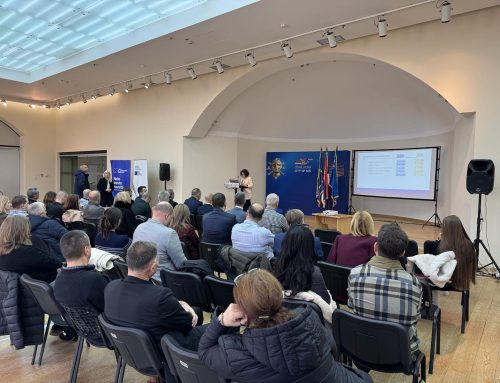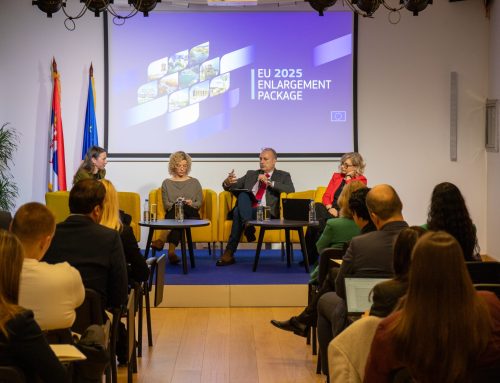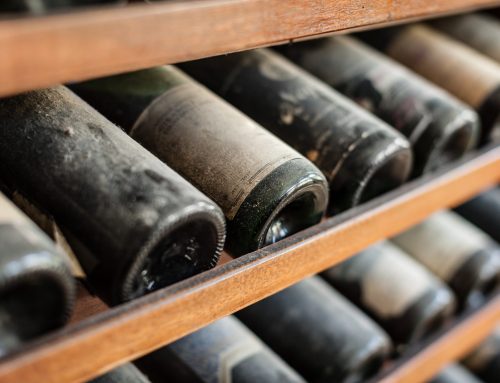Every year, Serbia throws away 770,000 tons of food, while around 90% of all waste still ends up in landfills—causing serious environmental harm and consuming valuable resources despite widespread scarcity and poverty in the country, according to data from the UN Environment Programme (UNEP).
The situation is no better when it comes to textile waste management. Serbia generates roughly 90,000 tons of textile waste annually, and according to the Serbian Chamber of Commerce, about 81,000 tons of it end up in landfills each year.
Aiming to improve waste management practices, five Serbian companies—Dax Intimo, Global Sistem Kooperativa, Jasmil, PS Fashion, and Ribella Foods—have signed cooperation memorandums with the Ministry of Environmental Protection as part of the “EU for the Circular Economy in Serbia” project.
The goal of the initiative is to help small and medium-sized enterprises develop practical business models and plans for integrating circular-economy principles into their daily operations.

Production unit of PS Fashion company
“Our aim is to provide them with expert consulting, training, and mentorship, as well as access to leading European practices that promote sustainability, resilience, and competitiveness,” explained Lluís Torrent, the project team leader.
He added that “the selected companies will receive comprehensive support—from environmental assessments and the development of circular business models to practical tools and insights gained through study visits to EU countries that represent best practices in circular-economy implementation.”
“We believe their examples will show how sustainable business operations can contribute both to environmental protection and long-term economic growth,” Torrent noted.
By joining the partnership, the five companies will explore innovative ways to reduce waste, improve resource efficiency, and adopt production models that extend product life cycles while minimizing environmental impact.

Food warehouse of the company Global Sistem Kooperativa
The selection of sectors (food processing and textiles) is based on the Serbian government’s strategic documents aimed at addressing environmental challenges in some of the most affected industries. The companies will develop circular initiatives that include environmentally friendly ideas for reducing textile waste, reusing industrial water through innovative technologies, and saving energy at various stages of the production process.
What Is the Circular Economy?
The circular economy is an alternative to the linear economic model, which relies on the uncontrolled exploitation of natural resources and a one-way flow of materials from factory to consumer to landfill—essentially a “take–make–use–discard” mindset.
In a circular economy, the loop is closed: product – waste – product. Industry is expected to function more like a natural ecosystem, where the waste of one sector becomes raw material for another, mirroring the cycles found in nature—hence the term “circular.” This model is based on principles such as eliminating waste and pollution, keeping materials in use for as long as possible, and regenerating natural systems.
Longer use of products, equipment, and infrastructure increases the productivity of these resources. As a result, demand for raw materials drops dramatically, helping create a more sustainable society for both present and future generations.

Shutterstock
Over the past 15 years, the European Union has invested more than 580 million euros in environmental protection in Serbia. This is a clear indicator of a long-standing partnership and a commitment to supporting Serbia’s green transition as part of its EU accession process.
The “EU for the Circular Economy in Serbia” project is implemented by the Ministry of Environmental Protection with financial support from the European Union, and carried out by NTU International and Global Factor. The initiative represents a long-term partnership between Serbian institutions, the private sector, and the European Union aimed at promoting sustainable development and environmental responsibility across the country.
Read more:
“Ekoopština” 2025: Awards for Sustainable Development and Environmental Awareness
EU supports greening Serbia with a package of EUR 16.3 million




